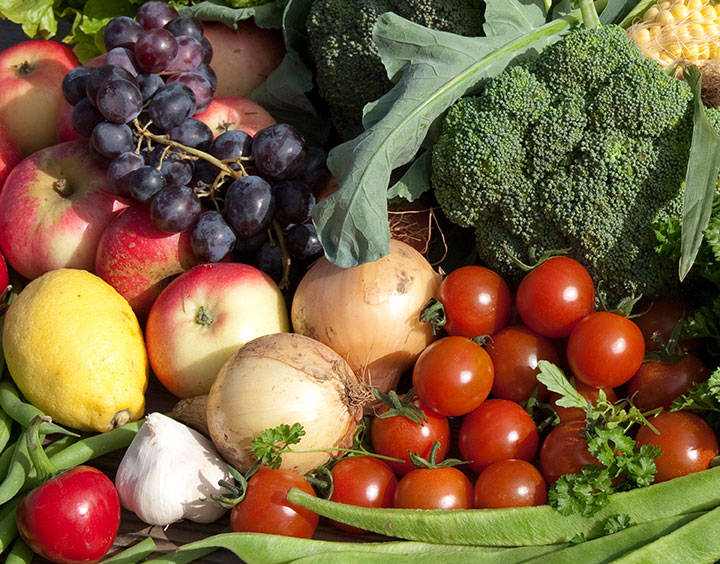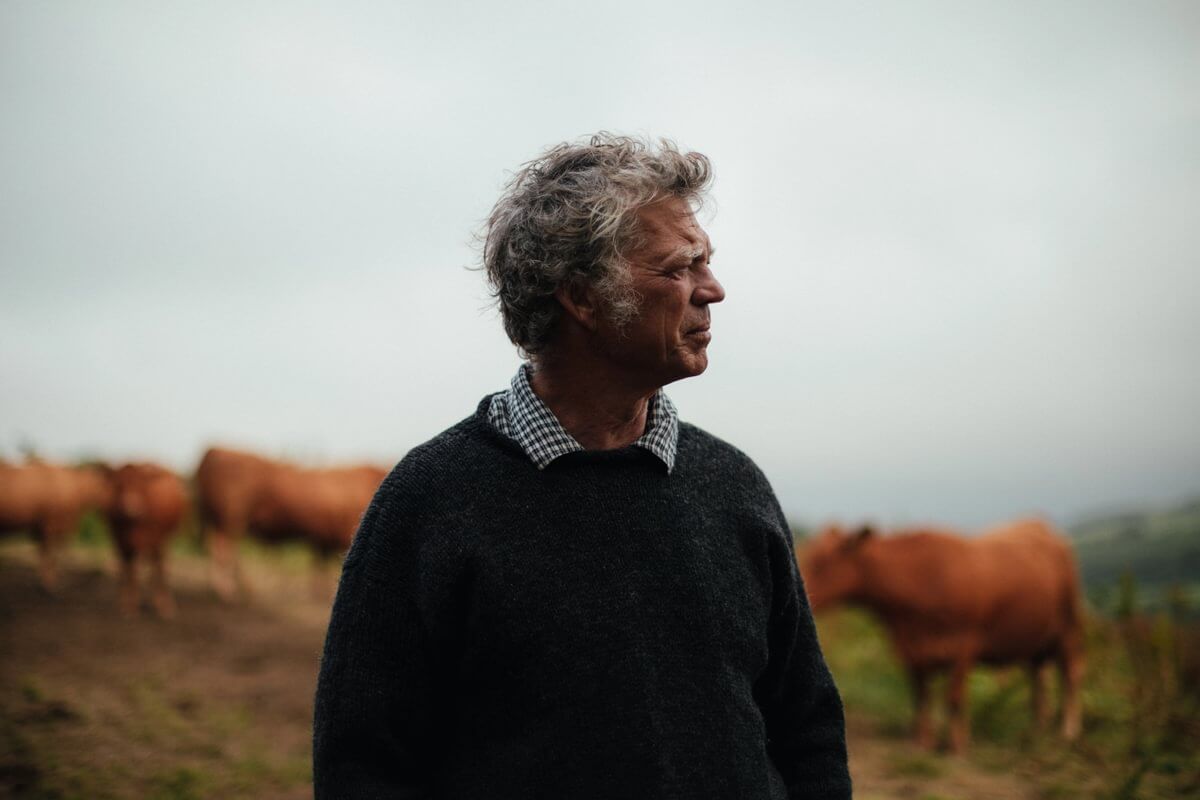Many questions surround the carbon-intensity of people’s diets, and a big one that comes up is consumption of beef and dairy. Undoubtedly, ruminant livestock are responsible for a significant level of greenhouse gas emissions.
However, not all livestock systems are the same – they vary wildly from intensive feedlots chucking out GHG’s through un-responsible feed production and manure/slurry handling, to lighter, grass-fed systems where some carbon is sequestered in soils.
It’s important to highlight the mechanisms for this: GHGs for cattle and dairy farming largely come from enteric fermentation (cows belching), manure, growing pasture or feed crops, and on farm power energy use.

While not being strictly low-carbon, purchasing organic, grass-fed UK animal products is a slightly climate-friendlier option where meat is concerned, due to reductions in transport emissions but also because permanent pasture locks carbon in the ground. Also, organic ensures a range of environmental farming benefits that safeguard water, air, and biodiversity.
However, if you’re not a fan of getting hung up on technical details, read on and follow these simple rules for a carbon-friendly diet:
• Eat mostly vegetables, fruits and whole grains
• Buy less tropical fruit and enjoy more of what’s available in the UK – apples, pears, soft fruits
• Try to purchase British grown plant protein i.e. beans and pulses from companies like Hodmedods
• Limit meat and dairy products to once a day, or only a few times a week, or less…
• Avoid processed food – it’s far more likely to have a high embodied energy/carbon footprint from processing, storage, and transport, as well as being subject to poorly sourced ingredients such as palm oil/un-responsibly produced soy
Zac Goodall is the author of Riverford’s first sustainability report, published in June 2020.













Is anybody lobbying for our food to show not just where it’s from but, if applicable, whether it is grown in heated greenhouses? I understand from Mike Berners-Lee’s, There is no Planet B, that this food is almost as bad for GHG as airfreight but it’s difficult to avoid if it isn’t labelled. All those peppers from Holland, does anyone know?
The peer reviewed scientific evidence on the carbon sequestration potential of livestock grazed land is clear. Any net sequestration is likely to be modest at best and time limited.
A scientific review published by the Food Climate Research Network concludes, “The potential contribution of grazing ruminants to soil carbon sequestration is small, time-limited, reversible and substantially outweighed by the greenhouse gas emissions they generate. The ambitious claims made by advocates of grass-fed livestock about grazing as a significant mitigation opportunity are thus unfounded.” (https://www.fcrn.org.uk/sites/default/files/project-files/fcrn_gnc_report.pdf)